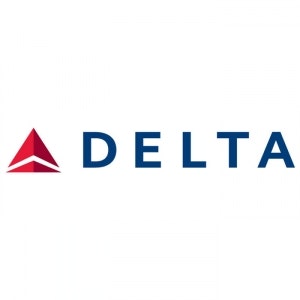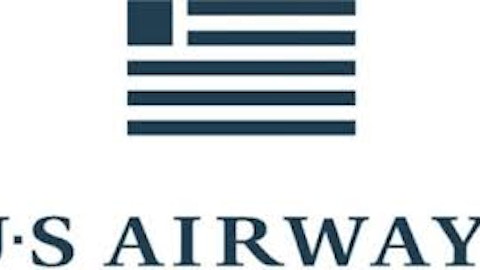Delta Air Lines, Inc. (NYSE:DAL) took Wall Street by surprise when it decided to purchase an oil refinery in Trainer, Penn., from Phillips 66 (NYSE:PSX) last year. Since then, many observers have criticized the deal, arguing that Delta’s refinery strategy is doomed to failure. However, much of the criticism is based around three big myths. The truth is that Delta’s refinery gambit will probably succeed.
Myth No. 1: If Phillips 66 couldn’t make it work, Delta can’t either
Perhaps the most common criticism of Delta’s refinery purchase is that the company should not expand beyond its core airline business. Phillips 66 had idled the Trainer refinery prior to selling it and was unwilling to make the necessary investments to keep the refinery running. As the largest independent refiner in the U.S., Phillips 66 clearly has significant expertise in refinery operations. Thus, many industry observers believe that if the Trainer refinery would have been a bad investment for Phillips 66, it will be an even worse investment for Delta.

By contrast, for Delta, owning a refinery allows the company to hedge against an increase in the market crack spread. While the refinery subsidiary (Monroe Energy) could lose money if the crack spread decreases, Delta would still benefit in that scenario, because a lower crack spread translates to lower jet fuel prices (holding crude oil prices constant). Thus, owning a refinery could potentially reduce Delta’s risk through diversification, which explains why Delta is willing to operate an asset that Phillips 66 wanted to divest.
The only remaining risk for Delta is that operating costs for the refinery come in higher than projected. However, barring unexpected maintenance issues, I assume that the long-term costs of operating the refinery can be projected fairly accurately. If Delta did its due diligence before acquiring the refinery, this should not pose a problem. The refinery is being overseen by a 25-year refining industry veteran, so the plant is likely to be managed competently.
Myth No. 2: Delta should just “hedge” instead of owning a refinery
Some people have responded to the diversification argument by claiming that Delta could just “hedge” using financial derivatives. However, this argument is based upon a fundamental misunderstanding of the problem. Delta already hedges against changes in the price of crude oil. By contrast, the Trainer refinery acquisition was designed to help Delta hedge against changes in the crack spread.
It is much more difficult to hedge against changes in the jet fuel crack spread. Jet fuel swaps are the only way to fully eliminate the risk of fuel price changes, but these instruments are expensive, illiquid, and not typically available in sufficient quantity for an airline of Delta’s size. Instead, airlines often use derivatives tied to New York heating oil, which is an exchange-traded commodity. However, the correlation between jet fuel and heating oil is far from perfect. For example, the premium of Gulf Coast jet fuel over New York heating oil dropped from $0.109 per gallon to $0.018 per gallon from 2008 to 2009. More recently, the premium has been around $0.05. These fluctuations show why hedging with heating oil derivatives is not fully satisfactory. The best way to minimize volatility in the jet fuel crack spread is to own a refinery.
Myth No. 3: Delta’s refinery loss last quarter proves that the acquisition is a failure
The website EconMatters posted an article last week, which claims that the Trainer refinery acquisition was a mistake. In addition to making the standard argument that Phillips 66 would have kept the refinery if it could have been profitable, the author also points to refinery losses of $63 million in Q4 as evidence that the acquisition has failed. However, the refinery was just restarting operations during Q4, and Hurricane Sandy severely disrupted distribution operations. While the Trainer refinery was able to keep operating through the storm, products could not make it to market. This forced Delta to slow refining rates, which hurt efficiency, and also resulted in some damage to the fluid catalytic cracker, which then had to be taken offline for repairs.
Nevertheless, these disruptions were all one-time events that should not recur. On Tuesday, Bloomberg reported that the Trainer refinery may be ready for restart later this week. Moreover, while EconMatters erroneously stated that Delta expects a small loss at the Trainer refinery in Q1, Delta actually stated that it expects a modest profit.
Profitability should improve even further in future quarters for three reasons. First, the fluid catalytic cracker has been shut for more than a month, which will depress Q1 profit, but not future quarters. Second, Delta will do test runs of Bakken crude brought by rail during the spring. If the test batches work as expected, Delta will be able to meet a significant amount of its crude oil demand with lower-cost Bakken crude. Phillips 66 recently embarked on a similar strategy, signing a five-year agreement with Global Partners LP (NYSE:GLP) to deliver Bakken crude to its Bayway refinery.
Lastly, Hess Corp. (NYSE:HES) recently announced that it will close its Port Reading refinery this month. With less available refining capacity on the East Coast, the supply of refined products will be smaller. This reduction in supply has already boosted the crack spread (the premium of refined products over crude oil). Since the Trainer refinery’s operating costs are relatively fixed in the short term, this increase in refined products prices has improved the refinery’s profitability.
Conclusion
Investors should not be scared by the myths surrounding Delta’s refinery operation. Delta’s management continues to project strong refinery profitability for 2013. Given that the company has outperformed peers for the past several years, investors have no reason to doubt management’s competence. Alarmist reports about the refinery’s profitability do not tell the whole story. Several years from now, the Trainer refinery purchase will likely be seen as a big coup for Delta.
The article 3 Big Myths About Delta’s Refinery originally appeared on Fool.com and is written by Adam Levine-Weinberg.
Fool contributor Adam Levine-Weinberg owns shares of Delta Air Lines and is also short Mar 2013 $14 Calls on Delta Air Lines. The Motley Fool has no position in any of the stocks mentioned.
Copyright © 1995 – 2013 The Motley Fool, LLC. All rights reserved. The Motley Fool has a disclosure policy.





